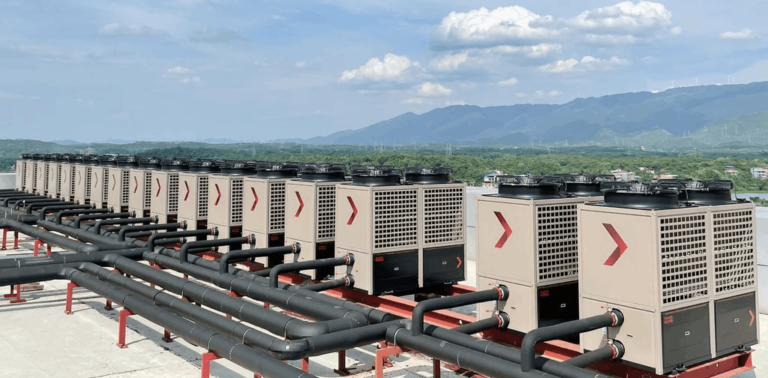The Chinese manufacturer said the latest version of its Phnix HeatMaster heat pump series enables seamless integration with PV arrays. The systems have a coefficient of performance of up to 5 and can reach an outlet water temperature of 75 °C.
Chinese heat pump manufacturer Phnix has launched a new version of its Phnix HeatMaster heat pump, which features “PV-ready” advanced smart control technology that reportedly allows for seamless integration with solar energy systems.
“The PV-ready feature is especially valuable for companies looking to maximize the use of their solar energy systems,” the company said in a statement. “As energy demand increases, especially during peak hours, the ability to source power from an alternative, sustainable source such as solar energy is a huge advantage.”
The smart control technology offers multiple operating modes: Standby mode, Low-power mode, Middle-power mode and High-power mode, which according to the manufacturer provides precise control over energy consumption and heating output, allowing it to be adapted to various business needs. It also calibrates the inlet and outlet water temperatures, giving them full control over the heat pump’s operation.
The heat pump uses propane (R290) as a coolant and can reportedly reach an outlet water temperature of 75°C.
The system is available in six versions with a heating capacity from 5 kW to 120 kW and a noise level from 40 dBA to 65 dBA, depending on the size.
The smallest product measures 1,020 mm × 448 mm × 605 mm and has a weight of 55 kg. It has a coefficient of performance (COP) of 5 at temperatures from 15 C to 20 C and of 1.80 at -15 C.
The largest system measures 2,170 mm x 1,150 mm x 2,130 mm and weighs 733 kg. The COP at temperatures from 15 C to 20 C is 4.65, while at -15 C it is 1.86.
“With multiple operating modes and precise water temperature control, the HeatMaster Series is designed to meet the unique needs of today’s commercial environments,” the company said.
This content is copyrighted and may not be reused. If you would like to collaborate with us and reuse some of our content, please contact: editors@pv-magazine.com.


